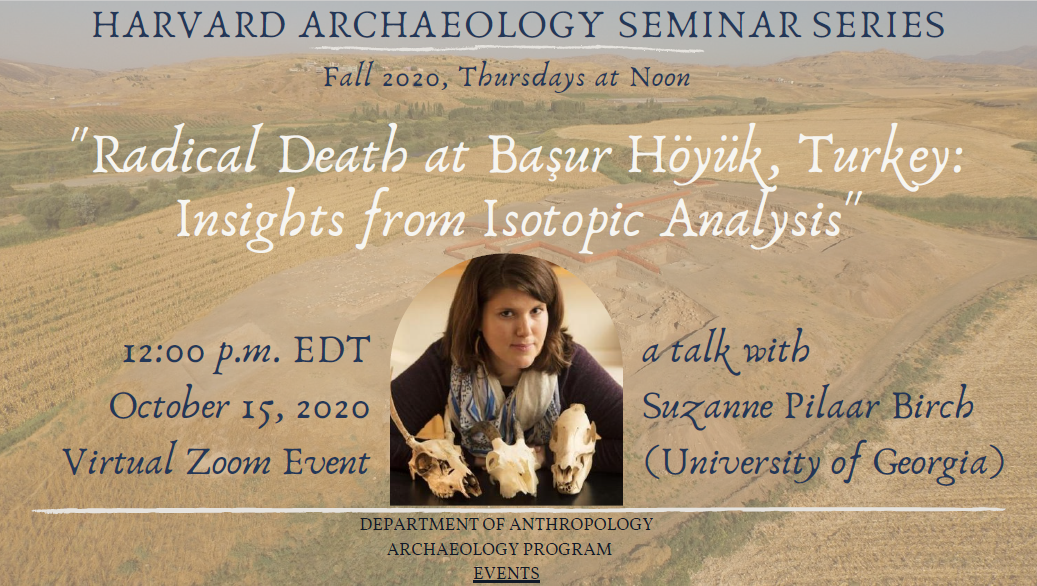Date:
Location:

Topic: Harvard Archaeology Seminar Series (HAS)
Time: Oct 15, 2020 12:00 PM Eastern Time (US and Canada)
Join Zoom meeting
https://harvard.zoom.us/j/96959674787?pwd=cVdJY3FvMkNicU1ld0lYQk5xZDVPdz09
Password: 752331
Abstract:
Recent excavations at the site of Başur Höyük have revealed burial contexts that provide insight into the biological, social, and economic dimensions of a population located at the crux of the collapse of the “Uruk world system”, both spatially and temporally, in eastern Turkey during the 4th millennium BC. Preliminary bioarchaeological analysis has made possible the stable isotope analysis of δ13C, δ15N, δ18O, 87Sr/86Sr, and lead in over 40 individuals across three different groups: elite burials, sacrificial burials, and mass burials. This comprehensive analysis sheds light on a number of variables, including access to dietary resources among the population as well as regional mobility dynamics. The analysis of multiple skeletal elements derived from a single individual, including comparison between bone and tooth enamel, elucidates life histories, such as identifying whether an individual was a migrant or a native and establish dietary change before and after major life events. Evaluation of the stable isotope data in combination with the archaeological and bioarchaeological context at the site allows us to consider to broad trends in regional collapse and early state formation, and the utility of multi-stable isotope analyses for informing these interpretations.